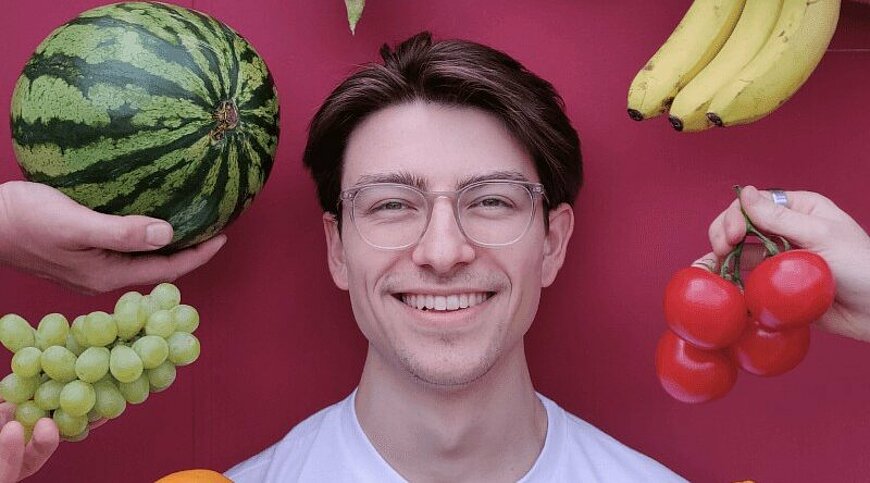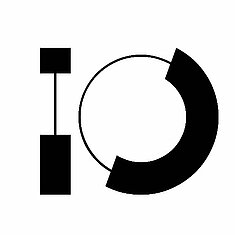Founder FruitPunch AI about leveraging AI for social impact

An interview with founder Buster Franken about how FruitPunch AI is leveraging AI for social impact, tackling real-world challenges while fostering ethical AI-education.
Developing software to save turtles in the Caribbean, helping women farmers in Nepal by digitizing loans, or calculating the volume of oil spills so they can be cleaned up as efficiently as possible are just some of the challenges AI engineers can sign up for on FruitPunch AI’s website. Innovation Origins sat down with Buster Franken, the founder and CEO of the Brainport Eindhoven-based company, to discuss using artificial intelligence for a better world.
'Do you want good or really good coffee?' asks Franken on the third floor of the Microlab at Strijp-S in Eindhoven. 'Automatic coffee machines somehow always ruin the taste,' he says. So Franken prefers to brew the coffee himself rather than leave it to a machine. The contrast with his career could hardly be more significant: in it, he is in a hurry, and machinery and automation play a leading role, although always in combination with the human aspect.
Improving the world while learning
FruitPunch AI’s mission is twofold. First, it is an educational platform for artificial intelligence. Talent from around the world can sign up for a challenge and learn how to use the technology in real-life situations in eight to ten weeks through challenge-based learning.
On the other hand, teams work on answers to real-life problems posed by agencies such as the World Wildlife Fund or the European Space Agency. 'Our trainees learn and contribute to the Sustainable Development Goals of the United Nations. This way, we build a community of engineers who ethically use AI. I believe engineers have much more power than they use. If they say: I’m not going to write an algorithm based on data with bias, a company has to take action. There is a huge shortage of people with these skills; companies can’t easily replace them.'
Indeed, Deloitte, EY, McKinsey are all dealing with a growing bottleneck: a lack of skilled AI engineers. Increasingly, these companies are having their employees do courses at FruitPunch.
Making impact now
One thing is clear: Franken is not an average entrepreneur. He went through the Bonnefanten College of Visual Arts to become an artist. Before his start-up adventure began in 2020, he worked as an actor, security guard, and teacher, among other things. In 2018, he earned his bachelor’s degree in Mechanical Engineering and Neuroscience from TU/e. Franken majored in creating 3D brain structures for testing medication for Alzheimer’s and brain-computer interfacing.
'Very interesting, but I soon discovered that combining AI and data science with brain interface – that is, the human brain – will take years. AI can already solve a lot of problems now.' So he switched and started his master’s in Artificial Intelligence and Engineering Systems. He dropped out, because he was disappointed with the theoretical content of the courses that, in his opinion, lacked eye for practice. Of course Franken did something about that, too; he was closely involved in founding TU/e’s Eindhoven Artificial Intelligence Systems Institute.
'Around the same time, I came in contact with Pieter Boon, an entrepreneur from South Africa. He wanted to tackle the poaching crisis there with AI.' A week after Franken hears this, he is in a game reserve near Johannesburg to see the problem for himself. Soon, he realizes he cannot solve this problem alone. A call on LinkedIn resulted in a group of eighty AI engineers willing to do their part. The project resulted in an autonomous drone that detects poachers using thermal cameras and machine learning.
'The system is sick'
So begins FruitPunch AI’s adventure in 2018. Franken sets out to find a business partner who is the opposite of himself in everything 'in the best way'. He finds that in Sako Arts. 'Where I am impulsive, busy, and disruptive, Sako brings calm, regularity, and weightedness. He is a true artificial intelligence expert and makes sure that everything already in place is running smoothly. He is our rock.'
With an investment of half a million euros, FruitPunch will become an official company by the end of 2020 – before then, it will be a foundation. Three years later, Franken and Arts had 4,500 trainees, 38 challenges, and over a million euros of investment down the road.
Franken is in a hurry. To give hands and feet to everything going on in his head, one human life is not enough for him. At times, that weighs quite heavily. To keep it up, he exercises for an hour almost every day and limits his working hours as much as possible from nine to six – he needs the rest of his time to give his thoughts a place.
FruitPunch has given him peace of mind because it is a concrete step on the road to his ultimate mission: to bring about systemic change. 'Climate change, mental health issues, loneliness. I see those as symptoms of a system that is sick. For example, I struggle tremendously with carbon capture. Yes, in the short term, it’s good to remove toxins from the atmosphere, but at the same time, I see it as a parody of how we set up our system. We need to fundamentally rearrange certain aspects of our system to do something about it. With FruitPunch, we are building a global community of people with the right skills and awareness to steer the world in the right direction. Education is the first step: people must develop skills to apply AI ethically. Together, we can change the world. Call it naive, but I believe in that.'
